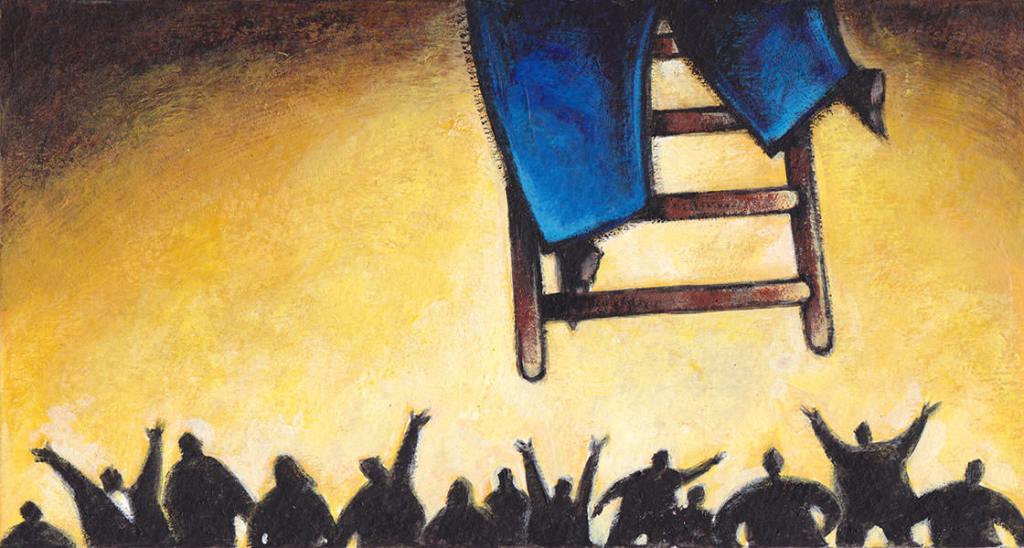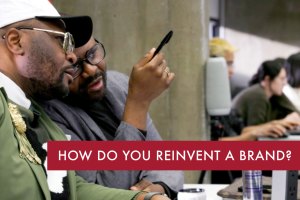Nation & World
-

Worried about how AI may affect foreign policy? You should be.
Experts discuss vulnerabilities, need for oversight of tech development, regulation
-
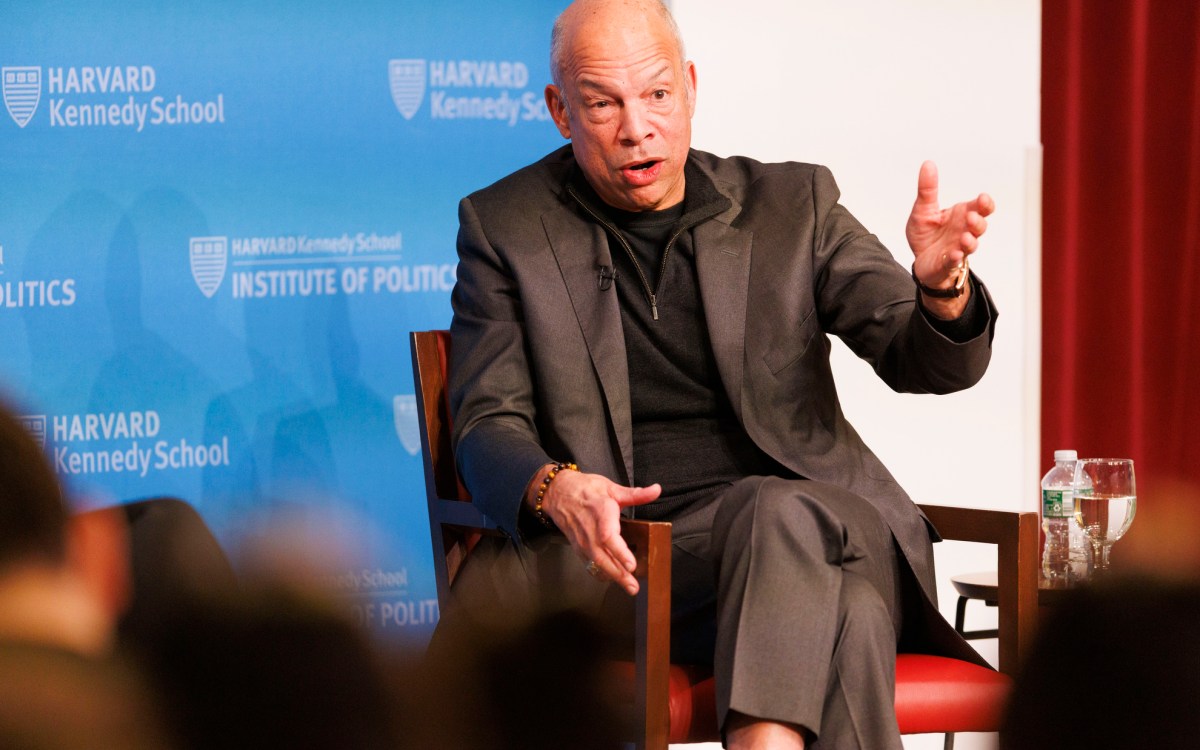
Border security isn’t really the problem
Former Homeland Security Secretary Jeh Johnson says current backlash is owing to cloudy mission, aggressive tactics
-
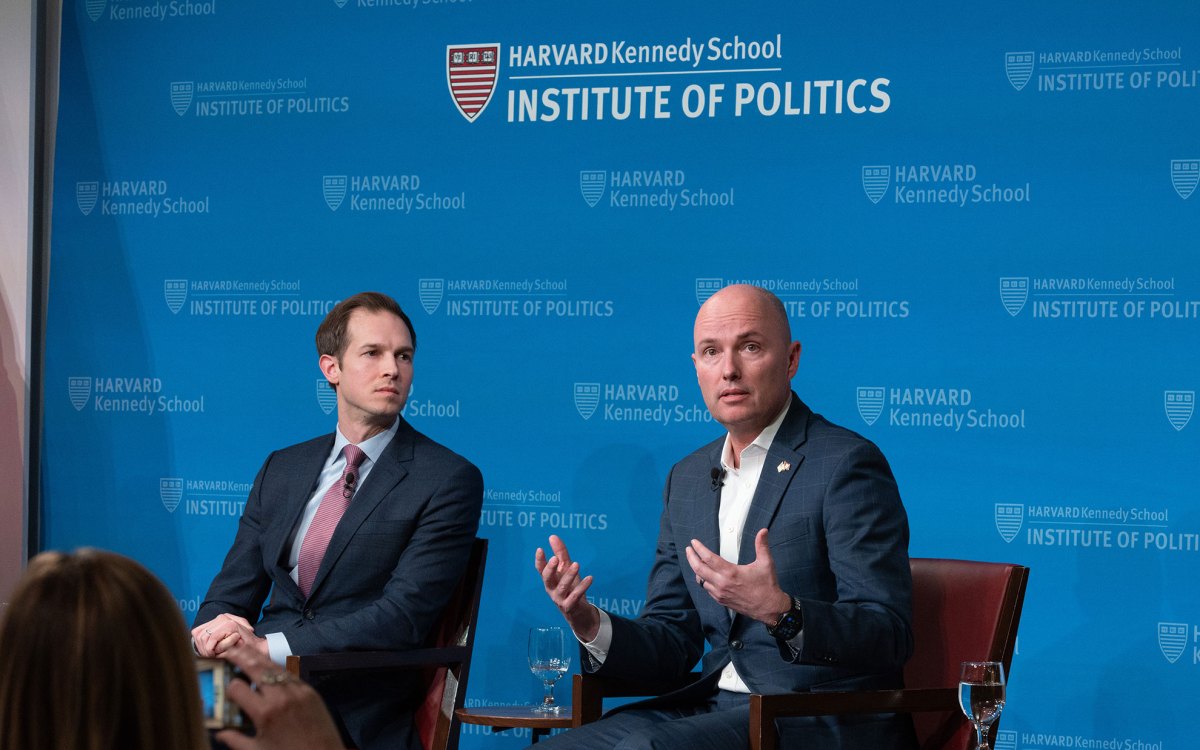
A start in bridging divisiveness: Rein in social media
Republican Utah governor, Democrat U.S. congressman find common cause
-
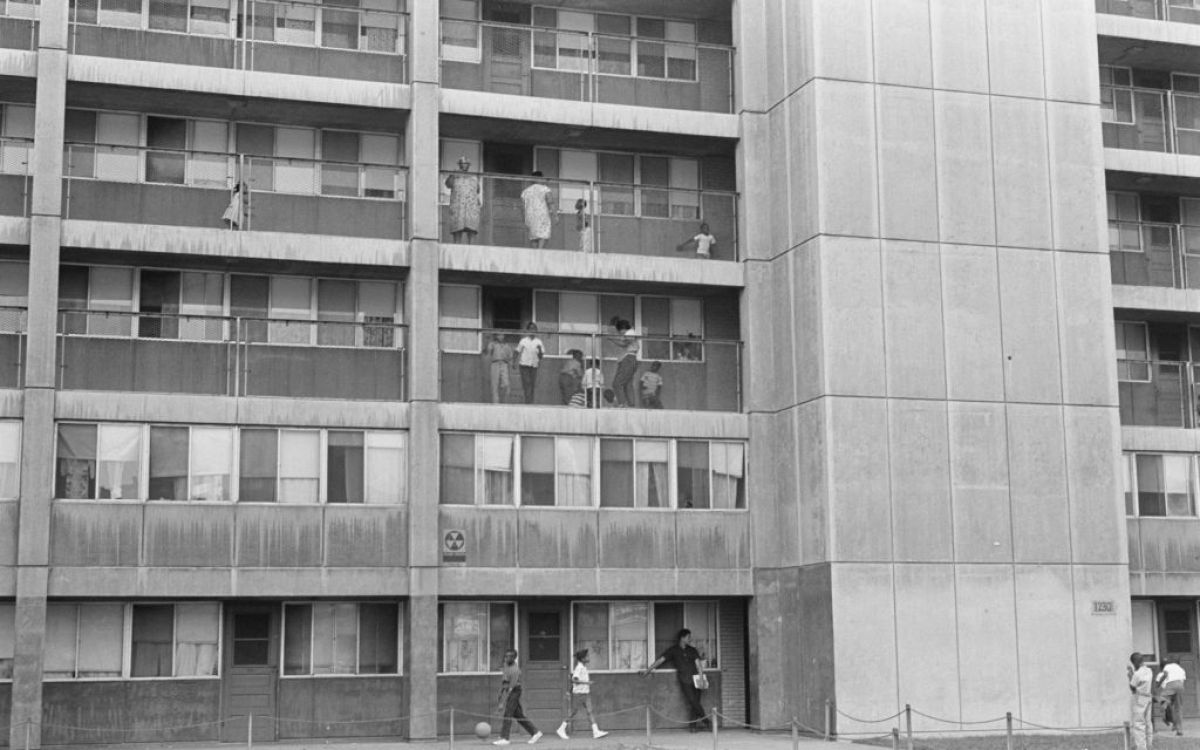
How design of public housing can lift future prospects of children
New research builds upon previous work that focused on moving families from high-poverty areas, broadening social milieu of young
-
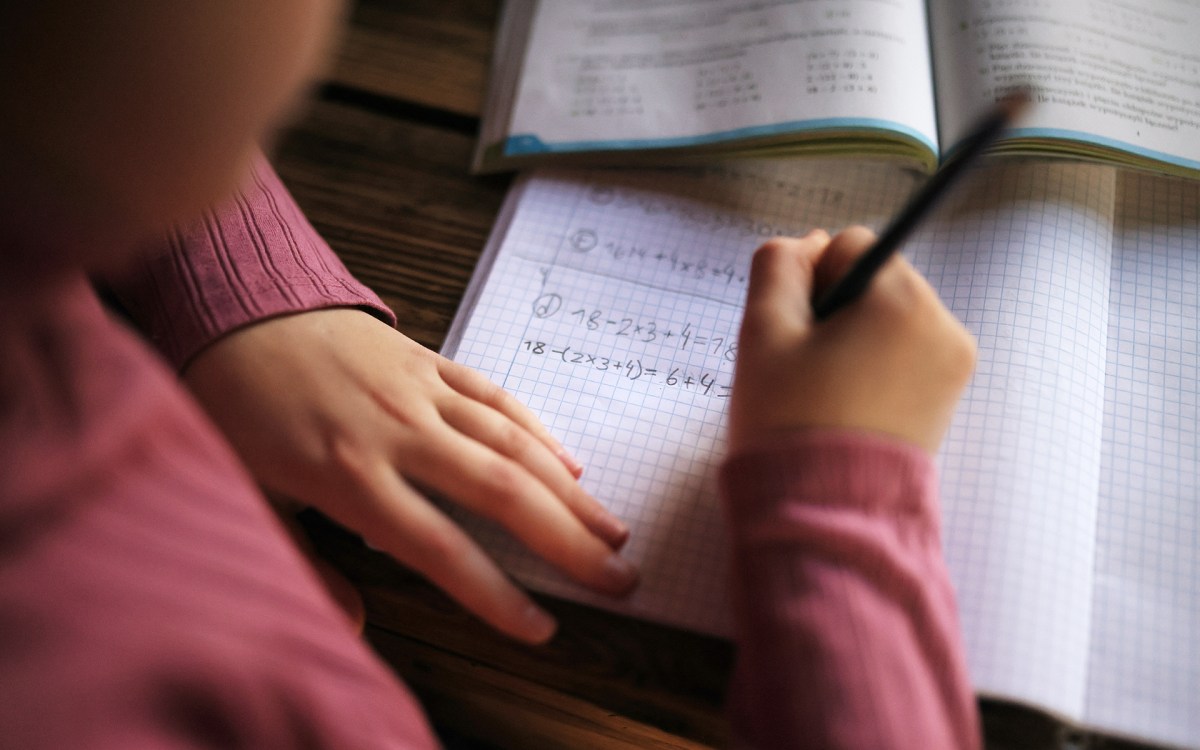
How to help lift slumping American math scores
Scholars see solutions in classroom creativity, higher teacher pay — and attendance
-
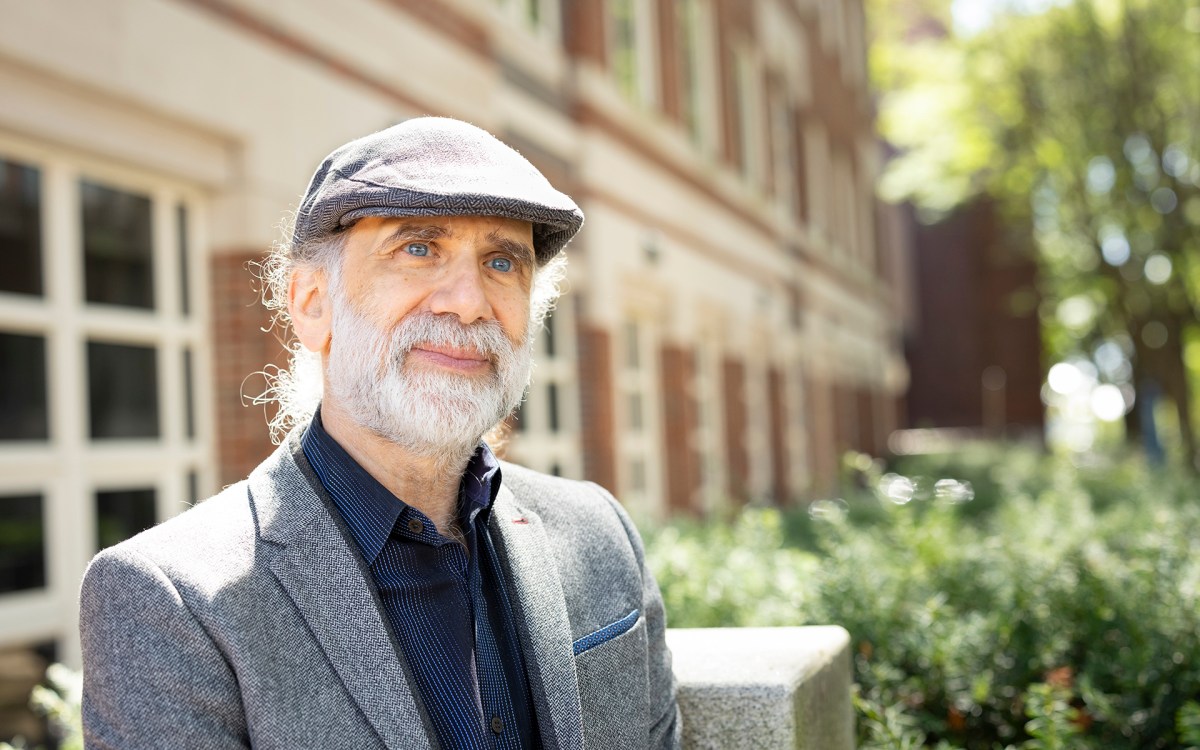
What if we used AI to strengthen democracy?
Surveillance, control, propaganda aren’t the only options, says security technologist
-
The making of two educators
Harvard University President Drew Gilpin Faust and her brother, Donald Gilpin, a retired English and drama teacher, shared their thoughts on pedagogy in a discussion at the Harvard Graduate School of Education.
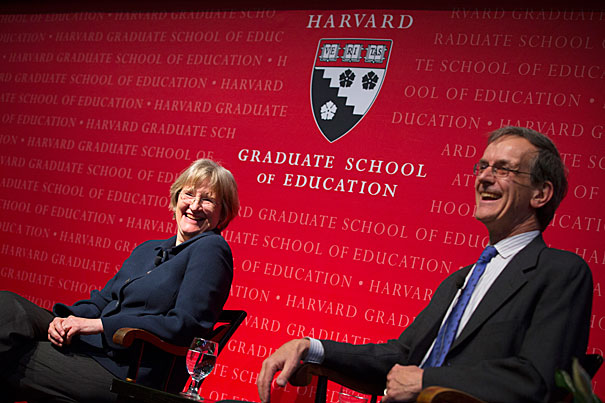
-
Obama in Havana
President Barack Obama will be the first sitting U.S. president to visit Cuba since Calvin Coolidge traveled there in 1928. Harvard scholars spoke about the trip’s symbolism in the efforts to re-establish diplomatic relations with Cuba.
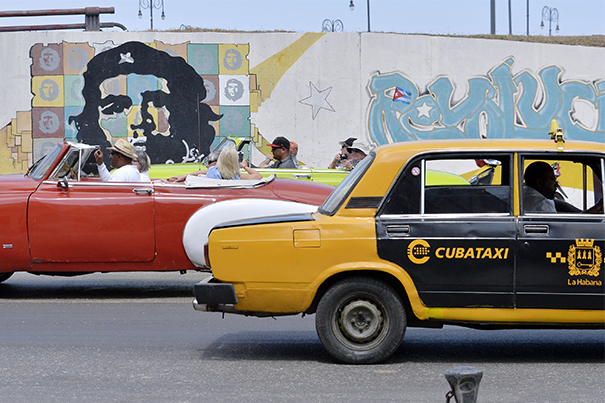
-
Ireland at the breaking point
Nearly everybody in the Boston area knows that March 17 is the feast day of Patrick, patron saint of Ireland. Perhaps fewer are aware that in 10 days’ time, the Republic of Ireland will celebrate its 100th anniversary as an independent nation. Professor Catherine McKenna guided the Gazette through the struggle behind that independence.

-
Justice in moderation
In a question-and-answer session, Harvard Law School Professor Laurence Tribe explains how Merrick Garland’s long service as a U.S. appeals court judge makes him a well-vetted candidate for the U.S. Supreme Court.
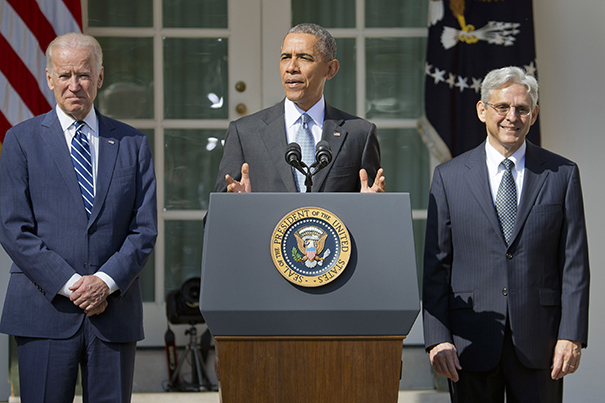
-
The costs of inequality: Faster lives, quicker deaths
For African Americans and Hispanics, damaged neighborhoods undercut education, health, jobs — the keys to overcoming inequality and succeeding.
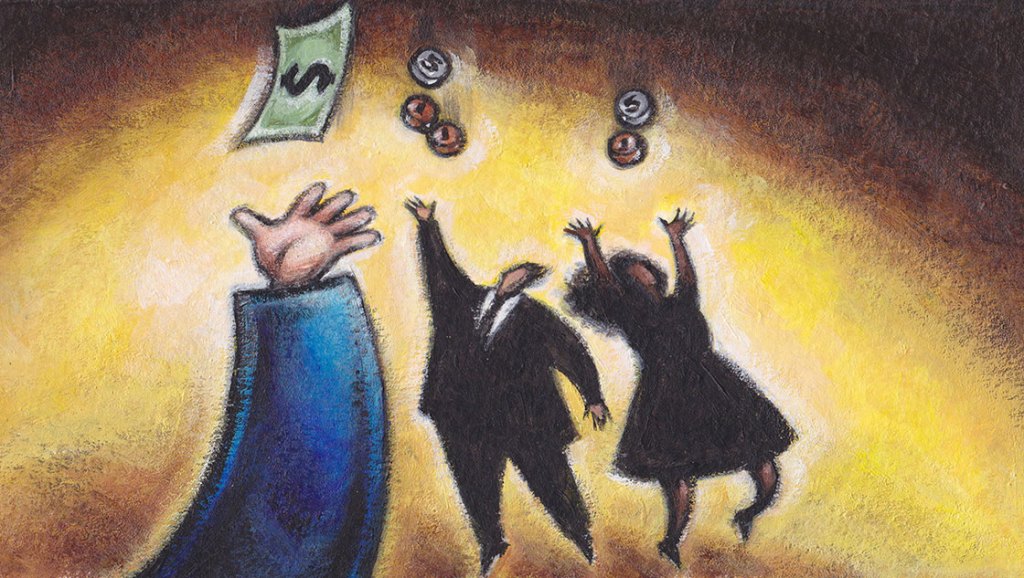
-
Working, with children
While there is greater support for gender equality today, how it’s defined and how greatly it’s supported remains in flux, a panel of sociologists found.
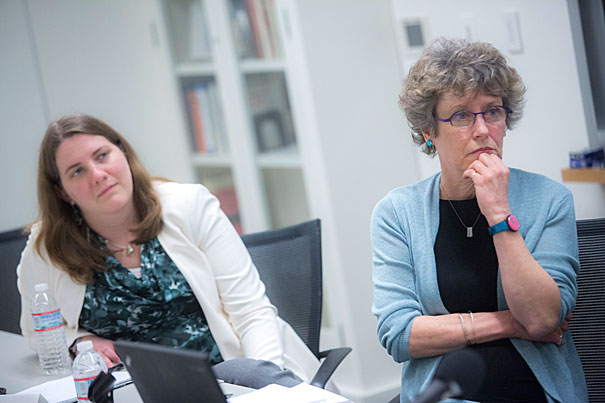
-
Home today, gone tomorrow
Harvard sociologist Matthew Desmond followed eight Milwaukee families living on the edge of eviction and chronicled their struggles in an ethnographic study that combines gripping narrative and groundbreaking research.

-
Leadership tips from ancient Rome
Harvard Business School M.B.A. students dig deep into texts of the Roman Empire to unearth lessons about leadership today.
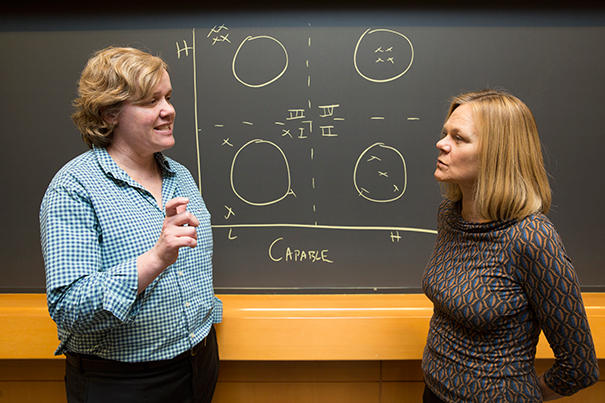
-
Retracing a path of destruction
Timothy Snyder, a history professor at Yale, talks about his new book, “Black Earth.”
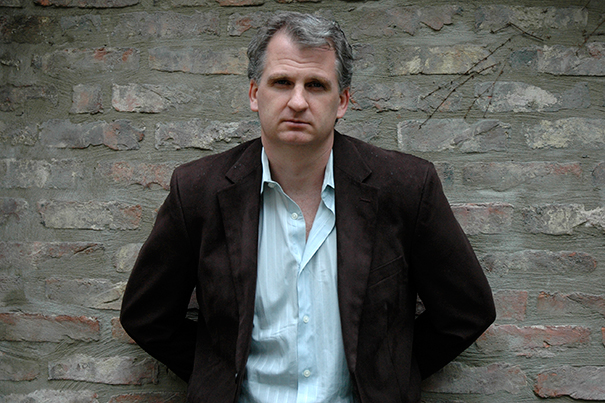
-
The costs of inequality: A goal of justice, a reality of unfairness
America’s prison system houses huge numbers of inmates, many of them serving lengthy mandatory sentences, but research finds little evidence that it produces criminal deterrence.
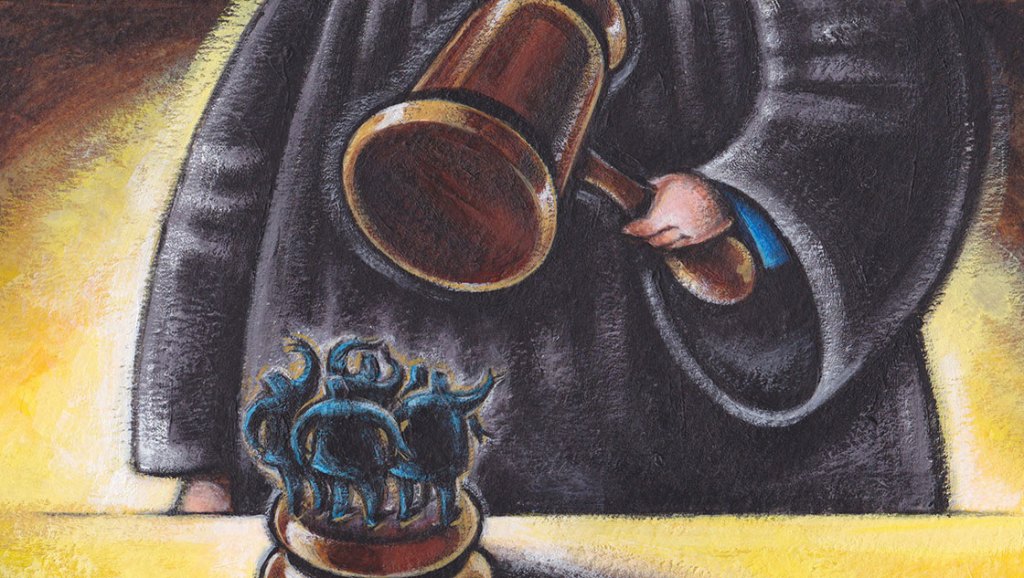
-
In GOP race, rage is all the rage
Harvard analysts discuss the deep roots of Republican anger driving this confounding and historic 2016 election.
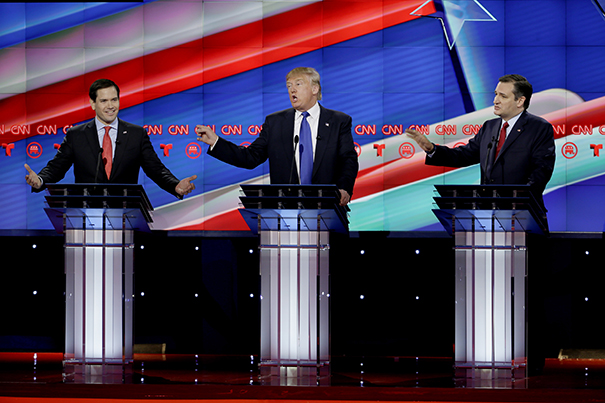
-
Clean Power Plan’s legal future ‘a mess’
The future of the President Obama’s Clean Power Plan hangs in the balance with the Supreme Court vote to freeze the plan in place, halting implementation while legal issues are decided by the U.S. Court of Appeals for the D.C. Circuit and, likely, by the Supreme Court itself.
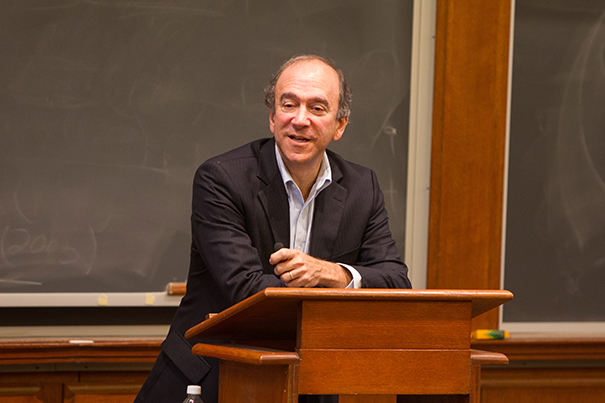
-
Variations on racial tension
Weatherhead Center panelists highlighted striking contrasts in how nations perceive and grapple with racial inequality.
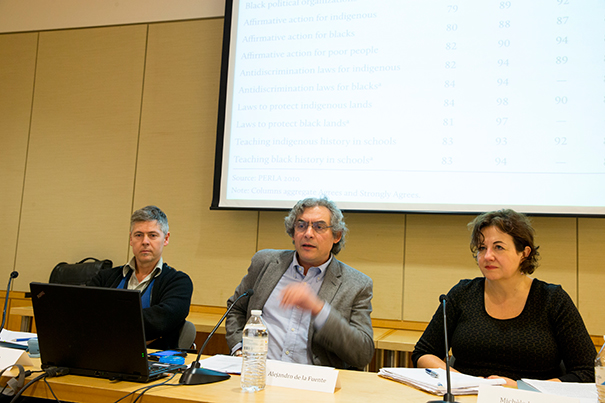
-
Case for reparation gains international force
Distinguished scholar and activist Sir Hilary Beckles, who is leading the international effort to seek restitution from European nations that engaged in the slave trade in the Caribbean, made the case for reparations during a talk at Harvard Law School this week.
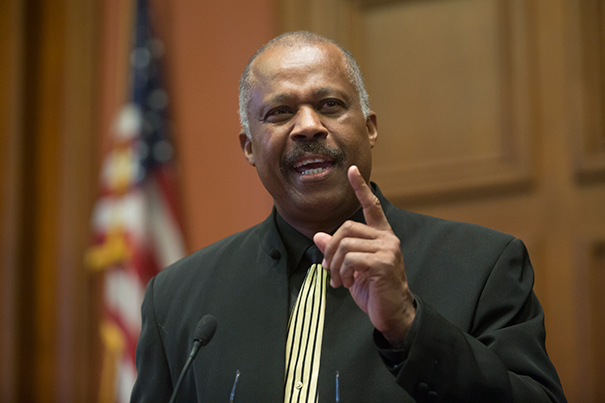
-
Business as usual
Evelyn Krache Morris, an associate with the International Security Program of the Belfer Center, assesses the Mexican drug trade in the wake of the arrest of El Chapo, the world’s most powerful trafficker.
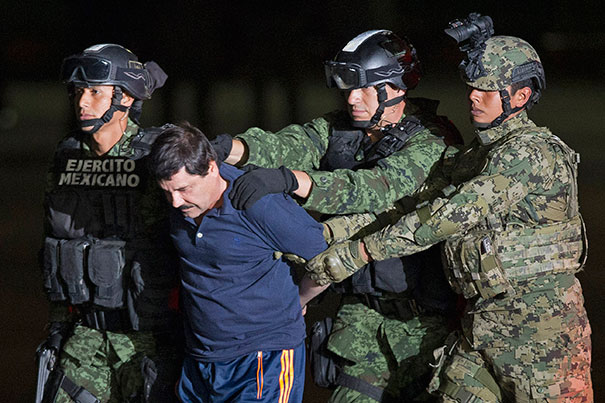
-
Ever-present Orwell
“What’s intriguing about bringing ‘1984’ back now is that some of those questions are out there again,” said Ash Center director Anthony Saich, an expert on Chinese politics. The Ash Center is co-sponsoring, with the A.R.T., a series of discussions on “topics that spark out of ‘1984.’” The next in the series of discussions is March 2.
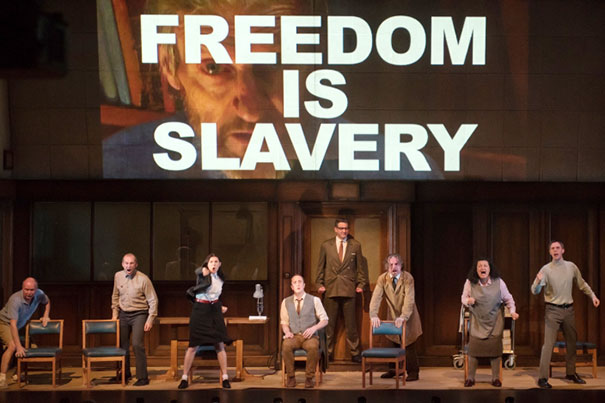
-
Election spotlight turned on media
Veteran political journalists Jill Abramson, formerly of The New York Times, and CNN’s Sam Feist discuss the good, the bad, and the ugly of the 2016 presidential election coverage.
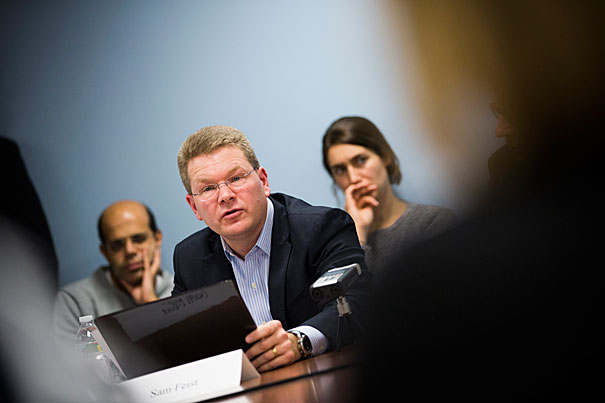
-
A hearing for pleas to right wrongs
A new project to digitize petitions from Native Americans to the Massachusetts legislature seeks to illuminate the history of the region’s native peoples, for scholars, students, and the tribes themselves.
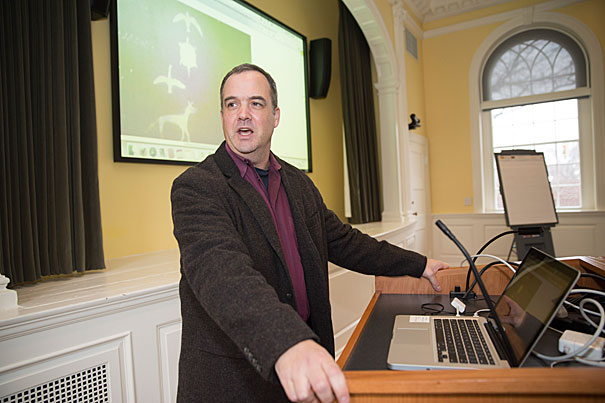
-
A stronger sense of belonging
Harvard will host a conference for first-generation college students at Ivy League universities this weekend.

-
Apple bites back
With a showdown over privacy and national security issues underway between Apple and the FBI, the Gazette spoke with cyber security expert Michael Sulmeyer and Jonathan Zittrain, co-founder of Harvard’s Berkman Center for Internet & Society, about the pivotal yet competing issues raised by the case.
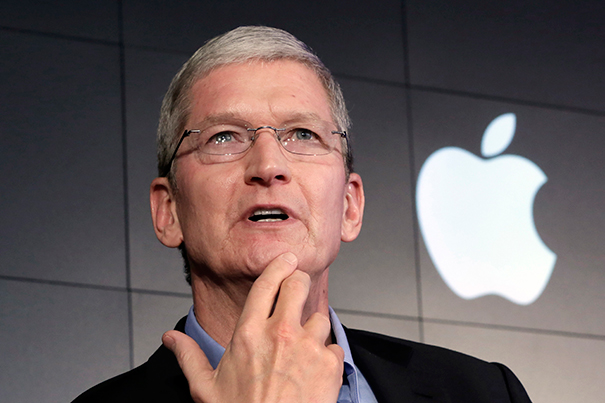
-
Women, overshadowed
New research finds that female economists are not being fully credited for their contributions when they co-author papers with men, which may explain the significant tenure disparity between men and women in the field.
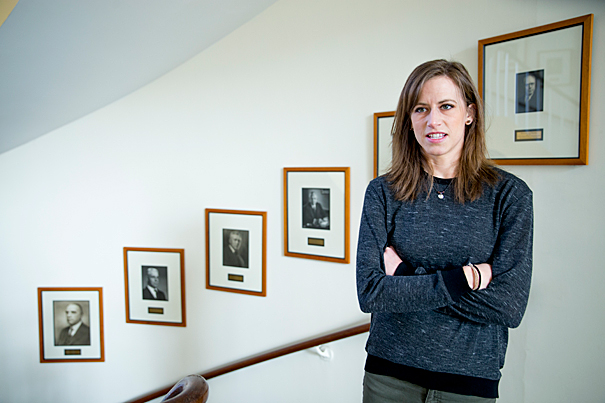
-
Death of a judicial giant
Harvard reacts to the death of Supreme Court Associate Justice Antonin Scalia.
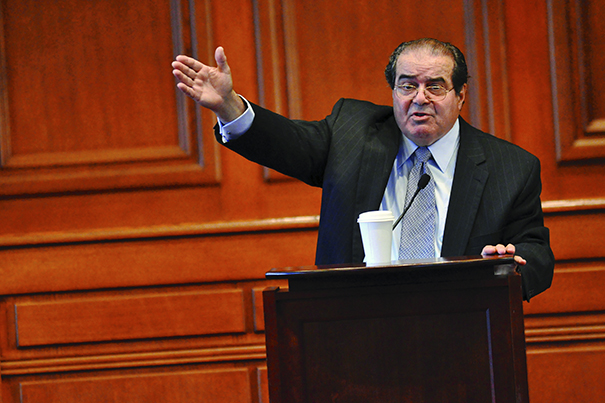
-
The costs of inequality: Education’s the one key that rules them all
When inequality is baked into public educational systems from kindergarten through the 12th grade, it usually extends through other aspects of life later, Harvard analysts say.
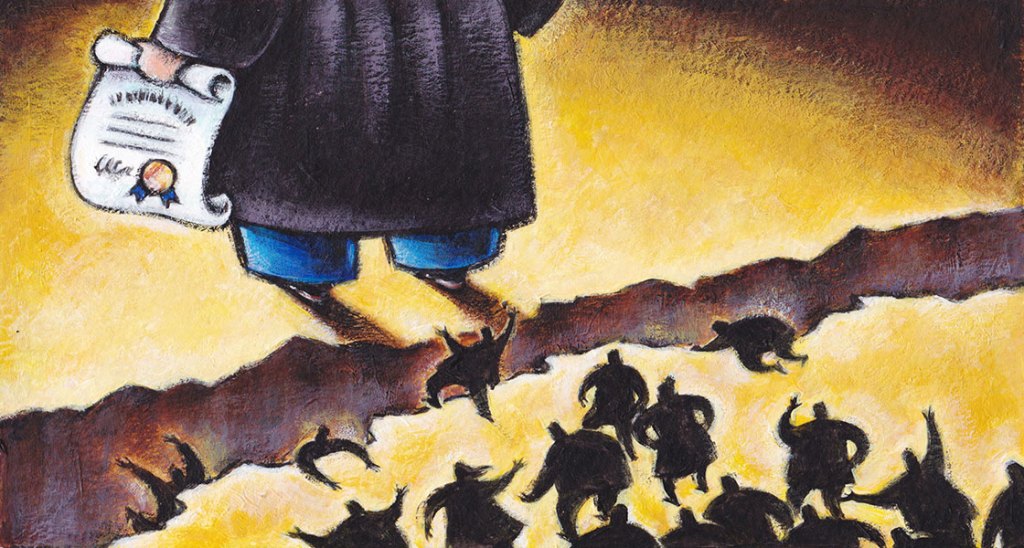
-
A religion course for the Internet age
A HarvardX MOOC explains world religions through their scripture.
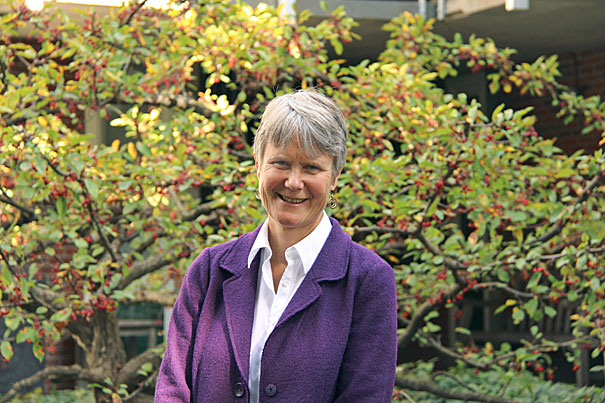
-
Keeping up the fight
An educator and award-winning author, Beekan Erena is on a mission to highlight the plight of the Oromo people, the largest ethnic majority in Ethiopia, who have struggled for years for political and economic equality.
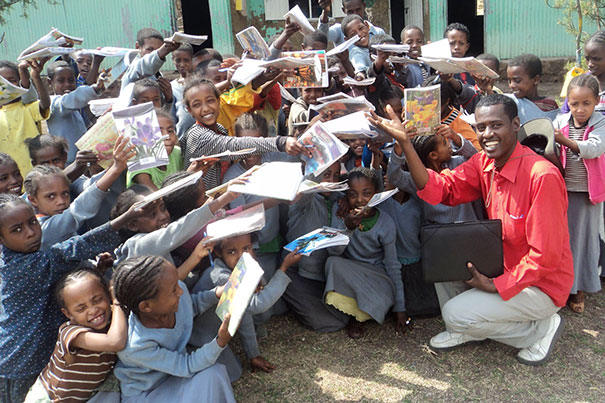
-
His eye on I-teams
The movie “Spotlight” shows investigative reporting at the heart of journalism’s charge, says editor who led child abuse probe.

-
The costs of inequality: Increasingly, it’s the rich and the rest
Increasingly, economic and political inequality in America is interlaced, analysts say, leaving many more people poorer and voiceless. But there are policy changes that could help change that.
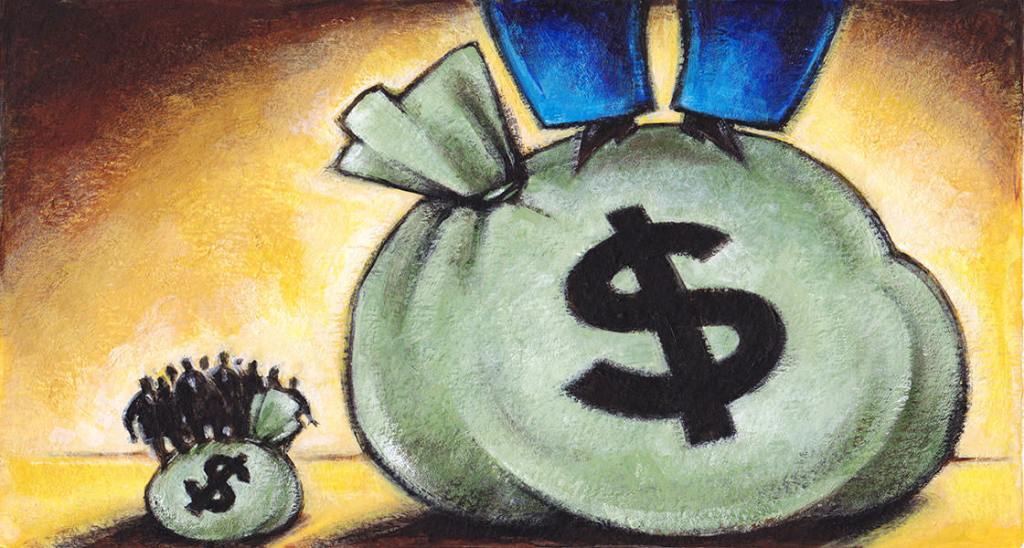
-
A question of citizenship
Two legal scholars debated whether U.S. Sen. Ted Cruz, who was born in Canada, is a “natural born citizen” according to the Constitution, and thus eligible to serve as president.

-
Trump hasn’t lost his edge, Schieffer says
The Kennedy School hosted a talk by veteran newsman Bob Schieffer on the state of the presidential race.
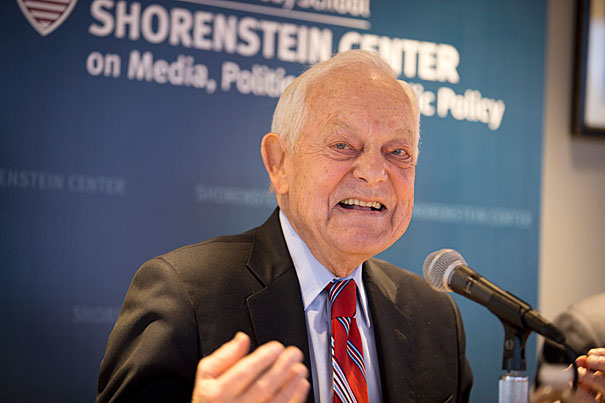
-
The costs of inequality: When a fair shake isn’t
Inequality is rampant in American life and is a key topic in the presidential campaign, but Harvard faculty members have been exploring its many facets for decades, and suggesting some solutions.
